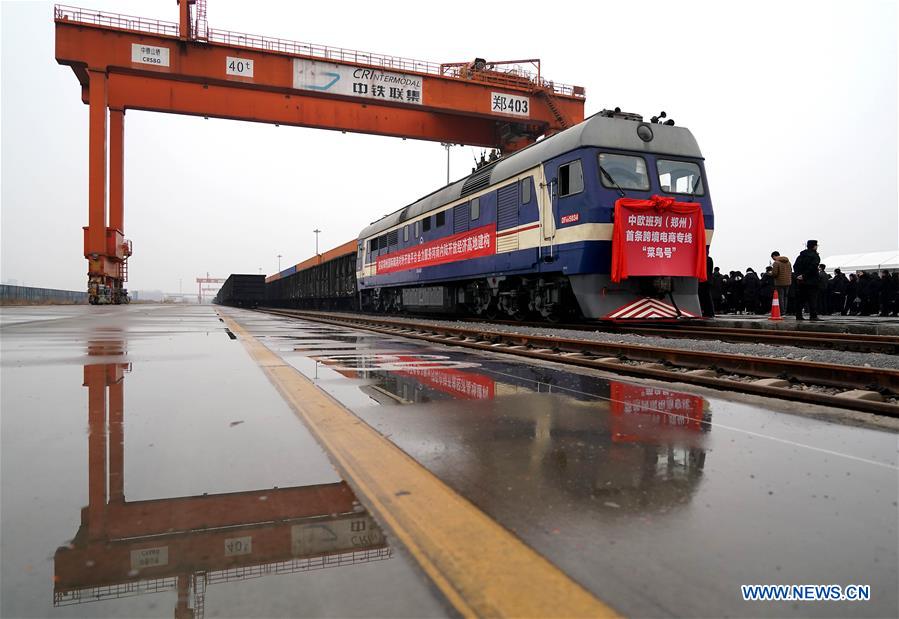EU-China investment deal vital for global trade boost
China and the European Union should accelerate their efforts to reach the EU-China comprehensive agreement on investment (CAI) by 2020, with a view to negotiating a free trade agreement soon after, said a senior official representing EU businesses in China.
China and the European Union should accelerate their efforts to reach the EU-China comprehensive agreement on investment (CAI) by 2020, with a view to negotiating a free trade agreement soon after, said a senior official representing EU businesses in China.

The China-Europe freight train for cross-border e-commerce waits to depart from Zhengzhou, capital of Central China's Henan province, March 2, 2019. [Photo/Xinhua]
Joerg Wuttke, president of the European Union Chamber of Commerce in China, said that rising uncertainties caused by the unilateral actions of the United States, are bad for business and investment decisions get deferred.
"The current onslaught on the existing multilateral system requires China and the EU - the two major beneficiaries of globalization - to hasten the conclusion of the EU-China CAI, and cooperate closely to safeguard the functions of the WTO," he said.
"If we drop the ball now, the impact will be felt for generations.
"We see no present opportunities emerging because of the Sino-US trade dispute. Rather, we want to see the conflict settled, as all business in China get hurt," he said, adding that business relations between the EU and China remained strong, and are not affected by Sino-US trade tension.
China-EU bilateral trade totaled US$337.99 billion in the first half of this year, growing 4.9% year-on-year. In the mean time, Germany, the United Kingdom, the Netherlands, France and Italy remained China's top five trading partners within the bloc, data from the General Administration of Customs show.
Eager to stimulate trade activities, the EU has concluded FTAs with Canada, Singapore, South Korea, Japan, Vietnam and the Mercosur countries, and Wuttke said that this proves EU's ability to compromise and act in an affirmative matter in the past few years.
The chamber has conducted a study on the impact on business of China's Social Credit System, which it will launch late next month, followed by its annual Position Paper, which this year will explore the significance of "competitive neutrality".
"I will launch a paper on European Connectivity, which has equivalence with the Belt and Road Initiative vision in January 2020," he said, adding that anecdotal evidence points to the fact that there has been some fruitful EU company engagement over the last few years.
Regarding the revisions of China's negative lists announced on June 30, Wuttke said the removal and raising of equity caps for foreign investment in selected areas of the Chinese economy has the potential to bring new opportunities for some European companies to enter the market or expand their footprint.
Under the threat of protectionism, both the EU and China are aware that they are each other's opportunity rather than rivals, and they have more to share in the future, especially in complementary areas of trade, high-end services and regional connectivity, in the globalized world, said Zhang Yunling, director of international studies at the Chinese Academy of Social Sciences in Beijing.
The EU Chamber of Commerce in China, which is part of the European Business Organizations, has more than 1,600 members in nine cities including Beijing, Nanjing, Shanghai and Shenyang.

